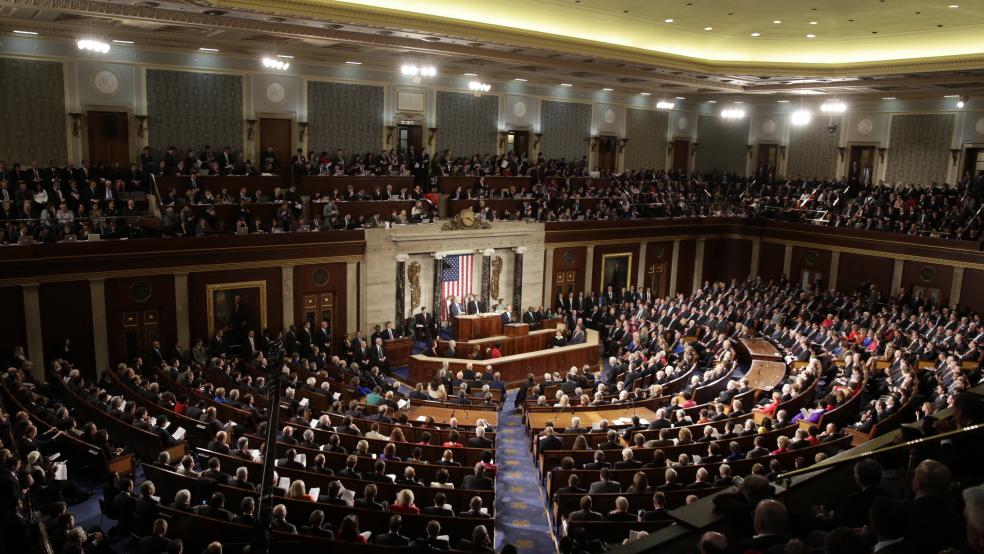In his final State of the Union address, President Obama will seek to burnish his legacy in foreign policy and national security and refute the notion put forward by his critics that he is leaving a world “on fire.”
While the White House has plenty of good arguments about the benefits of Obama’s economic policies, such as last week’s announcement that 11.3 million people signed up for health coverage under the Affordable Care Act or the steady addition of hundreds of thousands of job each month, world affairs have opened the president to a prolonged deluge of criticism that is unlikely to let up before he leaves office next year.
Related: Why Paul Ryan May Have to Give Up on His Legislative Agenda
Starting almost two years ago with Russia’s blitzkrieg annexation of the Crimea Peninsula, the president has been forced to battle the perception that global affairs have overwhelmed him. Since then, the U.S. has sent about 3,500 advisers back into Iraq to battle ISIS, Syria has become a bitter stalemate and Russia has reasserted itself on the world stage, with Russian President Vladimir Putin thumbing his nose at the administration’s effort in Syria and other parts of the globe.
The alarms grew even louder last week after North Korea, quiet for most of 2015, kicked off the new year with ominous saber-rattling, boasting it had a hydrogen bomb, a claim that has been widely disputed.
Still, the administration notched several foreign policy wins in the last year, most notably the Iran nuclear deal, re-opening diplomatic ties with Cuba, and sweeping international accords on trade and climate change.
How Obama navigates that thicket in speech will require a careful balance, according to experts.
Related: Why Congress Will Get Even Less Done in 2016
“He’s got some accomplishments in the foreign policy arena that he can build on,” said William Taylor, executive vice president of the U.S. Institute for Peace, citing the thaw with Havana and the Trans-Pacific Partnership trade agreement.
Taylor suggested that the president should carve out time to focus on Russia and make it clear that he has spearheaded an international coalition against Moscow’s invasion of Ukraine and “imposed real costs” on the Putin regime, even as he has kept Russia on board with the Iran nuclear deal.
However, the State of the Union is a tricky platform to get into more complicated policy matters, like the president’s decision to reverse course and keep 10,000 U.S. troops in Afghanistan, said Taylor.
Using the address “to describe that is probably not the best use of the limited State of the Union time.”
Related: Obama’s New Speech on Destroying ISIS Is Long on Promises, Short on Strategy
Taylor also hoped the president would avoid areas where he has lacked a “clear policy.”
Taylor declined to elaborate but it’s easy to pick Syria as a prime candidate. The administration has been all over the map as the country’s civil war barrels toward its fifth year, including pulling the plug on a $500 million program to train and equip “moderate” Syrian rebels inside the country.
Meanwhile, Russia has deployed significant military forces to the war-torn nation to prop up the Assad regime.
According to Anthony Cordesman, a national security analyst for the Center for Strategic and International Studies, Obama can use the speech for “justifying in broad terms his strategy and what has happened” on various fronts, like Iraq and the administration’s rebalance of U.S. military forces toward Asia.
Or he could use the address as more a “statement about what he wishes will come in the future,” said Cordesman, adding “you can easily do both.”
For instance, on Iraq, Obama can tout the retaking of the city of Ramadi by the Iraqi military and that U.S. forces are no longer engaged in direct combat operations, he said.
One of the biggest issues facing the president is counterterrorism. The ISIS attacks in Paris and the strike in California have put the entire country on edge with worry that jihadists could strike anywhere. Obama’s initial response to the anxiety, a tone-deaf speech delivered from the Oval Office, dragged down his poll numbers and lead to new questions about his strategy for destroying the terror group.
Cordesman said that while it’s too late in the president’s second-term to “make any detailed foreign policy announcements,” Obama could use the address as a soapbox to argue against Republican policies that he feels hurt the country’s national security, like Donald Trump’s call to bar Muslims from entering the U.S. or dismantling the Syrian refugee effort.
Ultimately, “the president makes the decisions about the speech but every second person in Washington is going to be making suggestions,” Cordesman joked.
“I would assume, in his last State of the Union, he’ll try to speak as personally as possible,” he added.
Taylor warned that “no matter what [Obama] says, people will be unhappy.”
“That’s the nature of making hard policy decisions.”





